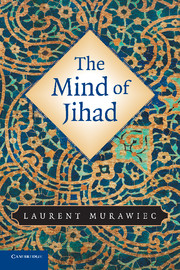3 - The Gnostic Mahdi
Published online by Cambridge University Press: 21 July 2009
Summary
Modern Islamic Gnosis
Islam is a religion with a universal message, not an esoteric creed reserved to a few Elect. It is an organized religion with institutions, rites, some hierarchy, and mass appeal. Sunni Islam strongly denies that the Quran carries any esoteric or even symbolic meaning. Beyond what God Himself has revealed in His Revelation, man cannot remotely approach the mystery of God. Men, a famous orthodox Sunni saying goes, must believe bila kayfa, “without [asking] how,” without questioning: “A clearer definition of that how [Muslim theologians believe] passes human understanding, and man ought not to meddle with things that have not been rendered subject to his thought.”
Does this place Islam beyond the reach of gnosticism? Hardy Gnostic speculators meet a tall barrier that impedes their fantastic constructs of pseudoknowledge based on the flimsiest of interpretations. Yet Gnosis “attends, like a shadow, late Ancient Judaism, nascent Christianity, later Islam, and the shadow shall never part company from them.”
A leader of the revolutionary Iraqi Shiite movement al-Dawa explained: “The Muslim people and its leaders are closely linked to the esoteric world, as it is expressed in the form of the Hidden Imam and the divine meaning of the affairs of the world.” Islam truly is burdened by a heavy Gnostic content, inherited from the legacies of Persian-Zoroastrian and Manichean religions, from other ancient Middle Eastern mystery religions, from Jewish and Christian apocalyptic religions, and from heresies that preexisted or developed under Byzantine Christianity, itself often gnostically inclined.
- Type
- Chapter
- Information
- The Mind of Jihad , pp. 90 - 131Publisher: Cambridge University PressPrint publication year: 2008



